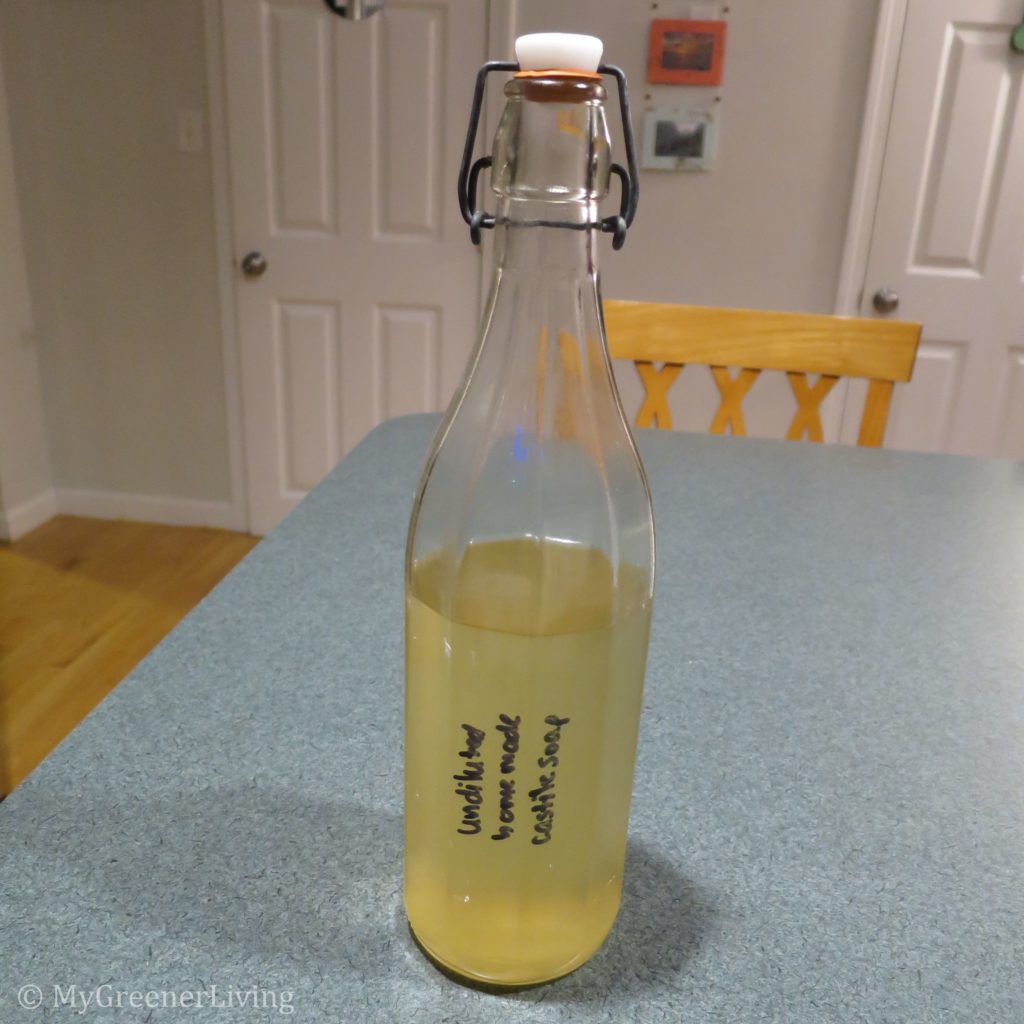I have many posts talking about how much I love my homemade bar soap, my homemade liquid soaps, and all the products I make with these soaps. But I was recently reminded that, in this day and age, natural soap is not the solution to all cleaning needs.
Disclaimer: This post contains affiliate links. See my Disclosure Policy for more information.
Natural soap
From my experience, the natural soap works very well for cleaning natural dirts and oils. I love my natural liquid soap for hand soap, face wash, dish soap, dishwasher detergent, clothes washing. This works well for me because the oils I am trying to clean are natural – sweat on my body or clothing, food oils on dishes. My bar soaps work great for me as a shower bar, for cleaning body oils.

Detergent “soap”
From my experience, natural soap is not effective in cleaning synthetic oil or oils derived from petroleum products, such as machinery grease, sewing machine oil, bicycle chain grease, and motor oil. For those synthetic and petroleum based oils, I need to use a detergent instead of soap.
I honestly haven’t done much research on gentle, environmentally friendly detergents. My use of detergent is so infrequent that I still have the small bottle that I bought about 10 years ago, before I was as environmentally- and synthetic chemical-conscious. I use Dawn original dish detergent for those synthetic stains on laundry, or if I get grease on my skin. While I do not like the ingredient composition or EWG rating (D), I use Dawn so infrequently and sparingly that, like my use of BarKeeper’s Friend, I am not terribly worried about its negative impact on me and the environment. I still want to find a more environmentally friendly detergent for these infrequent needs, and will report back to you when I find one!

One exception to my soap vs. detergent use
Poison ivy. Its (natural) oils cause contact dermatitis (skin irritation) in unlucky people like me. According to what I have written above, natural soap should clean poison ivy oils from skin and clothing. However, I am super-sensitive to poison ivy and other skin irritants, and I don’t want to take any chances. I elect to use detergent – Dawn – when cleaning skin, shoes, and clothing that have contacted poison ivy. It’s worked well for me at preventing contact dermatitis, or from it spreading, after I have contacted poison ivy. I have heard a rule of thumb saying that if the oils are washed off the skin within about 20 minutes of touching poison ivy you won’t get a reaction (contact dermatitis) and for me this has been true.

What is a soap vs. detergent?
This article explains the difference between soap and detergent. One thing that makes this a bit confusing is that what is commonly marketed as “soap” – bars of body “soap,” dish “soap” – are not really soap but detergent.
Real soaps are organic compounds. (Think back to chemistry class – organic in the chemistry sense, not the pesticide free sense where we normally hear “organic.”) Soap is made from mixing fats with a strong base (typically lye) and allowing a chemical reaction – saponification – to occur. Soaps are made of a combination of entirely naturally occurring ingredients.
Detergents are typically synthetically derived – they are created in a lab. Ingredients that make up detergents are either synthetic or a combination of synthetic and natural.
In my mind the difference is simple – soap is natural and detergent is engineered. In general, I think soaps are better for the environment, and for my body, because they are natural. I use soap wherever it works, and (sparingly) use detergents only when soap won’t cut it. (ha, ha. My awful sense of humor is slipping out…)
Do you know of a good detergent soap that is more gentle on the environment? Please share in the comments below!

